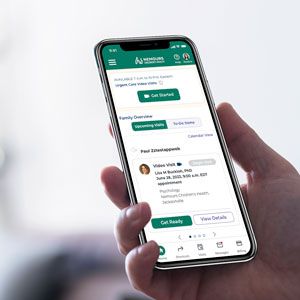Critical Care Fellowship
Program Overview
The Pediatric Critical Care Fellowship Program at the Nemours Children’s Hospital, Delaware, in affiliation with Sidney Kimmel Medical College at Thomas Jefferson University (TJU), offers a multifaceted fellowship training program in pediatric critical care medicine.
Accredited by the Accreditation Council for Graduate Medical Education (ACGME), the program is based at Nemours Children’s Hospital, Delaware’s only pediatric trauma center. Both the training program and our Pediatric Intensive Care Unit (PICU) itself are staffed by board-certified and fellowship-trained intensivists with varying backgrounds and extensive experience in both the clinical and research realms.
This fellowship program is an exciting opportunity for pediatric residents interested in a career in critical care. We expect that our graduates will go forward to have successful academic careers in tertiary care settings.
- Curriculum
- Research & Training
- Salary & Benefits
- Location & Living
- Faculty & Participants
Our Fellowship Program
The Pediatric Critical Care Fellowship Program at Nemours Children’s Hospital, Delaware gives residents opportunities to develop their knowledge base and skills to provide the highest level of critical care to children in an academic environment that is rigorous, friendly and supportive.
You’ll receive an introduction to laboratory and clinical research and the principles of administration, as well as training to be an excellent educator.
The 3-year program provides both clinical and laboratory research, with strong mentorship from experienced researchers. Internal funding for research from Nemours Children’s Hospital, Delaware is also available. The critical care team provides medical coverage for pediatric trauma patients as Nemours Children’s Hospital, Delaware is Delaware’s only pediatric Level 1 trauma center.
Nemours has a dedicated and very active Pediatric Critical Care Transport Program, Nemours Kids Transport, which serves our large referral base. Our pediatric intensivists serve as medical command for all pediatric transports. Throughout transport, our advanced electronic health record (EHR) links our clinical team to the patient’s entire record.
Clinical Curriculum Highlights
The clinical component of the curriculum emphasizes the pathophysiology of acute, life-threatening disease and injury, and the general principles and physiology of advanced life support — including training in, and use of, advanced technologies. This part of the program places equal emphasis on clinical and academic skills.
You’ll be required to demonstrate excellence in all aspects of clinical care, including working in and leading teams, as well as teaching. Upon successful completion, you’ll be able to pursue subspecialty certification in pediatric critical care medicine.
Program Aims
Our main goal, as always, is to train clinically excellent fellows who are exposed to a wide variety of critical care pathology. Our secondary goal involves a broad exposure to the research process, including generation of a hypothesis, design of a comprehensive scholarly activity, robust data collection and analysis, formulation of a manuscript and intimate knowledge of the publication process. Finally, we strive by combining goals one and two above to produce fellows who are able to thrive in multiple critical care settings as an attending physician.
Apply Today
Application Requirements
Accepting Applications: July 2 through October 1, 2025
Training Begins: July 1, 2026
1. Submit application electronically using ERAS
2. Curriculum vitae
3. Personal statement
4. Medical school transcript
5. USMLE scores (all 3 levels)
6. Three references
Questions About Applying?
Nicholas B. Slamon, MD
Program Director
(302) 651-4029
nicholas.slamon@nemours.org
Jennifer DuBois
Division Coordinator Lead
(302) 651-4029
jennifer.dubois@nemours.org


